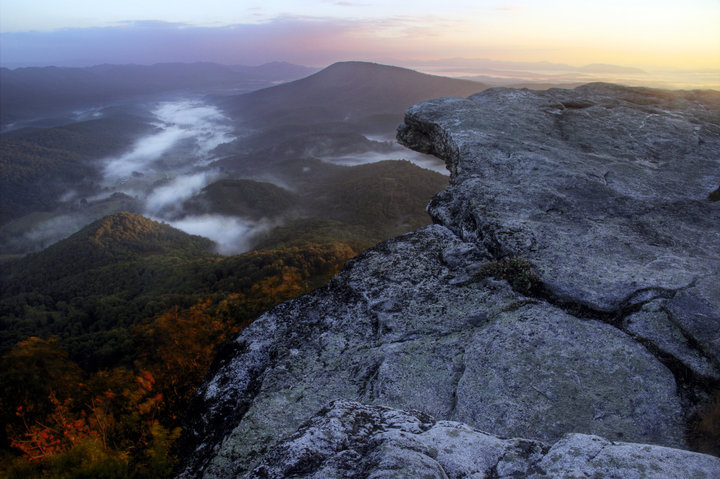This proposed pipeline would cut right through the Appalachian Trail
Environmental groups are voicing opposition to a proposed natural gas pipeline that would cut across the Appalachian Trail in Virginia and require clearing a previously protected corridor of forest.
The Mountain Valley Pipeline would transport natural gas from northwest West Virginia to southern Virginia, according to The Wilderness Society, which published an editorial this week saying the pipeline would set a “dangerous precedent.” That’s because construction would involve clearing a 125-foot-wide section that would cross 3.4 miles of forest protected under the Forest Service’s “roadless rule ― litigation meant to protect lands from road construction and logging.
“Some of the most iconic viewpoints, like Angels Rest, along the Appalachian Trail in Virginia will look out upon an ugly swath of destruction that dissects habitat and threatens waterways,” the Wilderness Society writes.
Specifically, the pipeline would cross Jefferson National Forest in West Virginia and Virginia, pass through the Appalachian National Scenic Trail Corridor and cross the Appalachian Trail near Virginia’s Peters Mountain Wilderness Area, according to the conservation group Wild Virginia.
Multiple environmental groups said this month that they refused to even comment on the government’s Draft Environmental Impact Statement for the project because the draft has so many errors.
Other concerns include the public safety of residents, businesses and community organizations that would find themselves in the “blast zone” — a radius of about 1,115 feet around the pipeline where an explosion could have a “significant impact on people or property.” In Newport, Virginia, that zone includes historically significant buildings as well as residents’ homes, according to The Roanoke Times. Other Virginians have expressed fear about threats to groundwater, given the porous nature of the karst landscape of the state’s Giles County where some of the pipeline is slated to go.
Pipeline supporters include Virginia Gov. Terry McAuliffe (D) and local business leaders, who say the project would create jobs, lower energy costs and potentially attract new business.
A public comment period on the project will run through Dec. 22. Anyone can have file a comment on the Federal Energy Regulatory Commission website, or call or write to FERC Secretary Kimberly Bose. The Appalachian Trail Conservancy has also put together a comprehensive guide on how to contact members of the Virginia and West Virginia legislature and representatives of the U.S. Forest Service.
